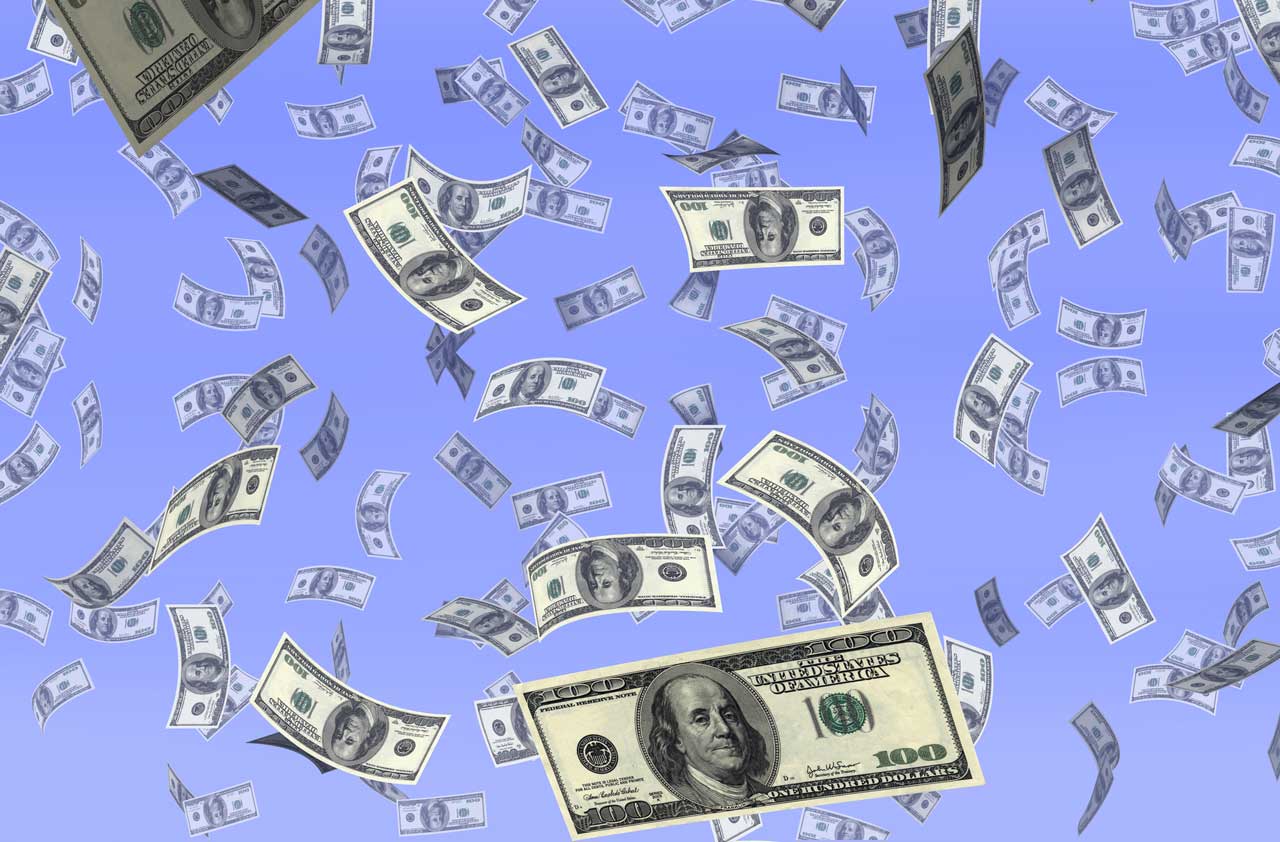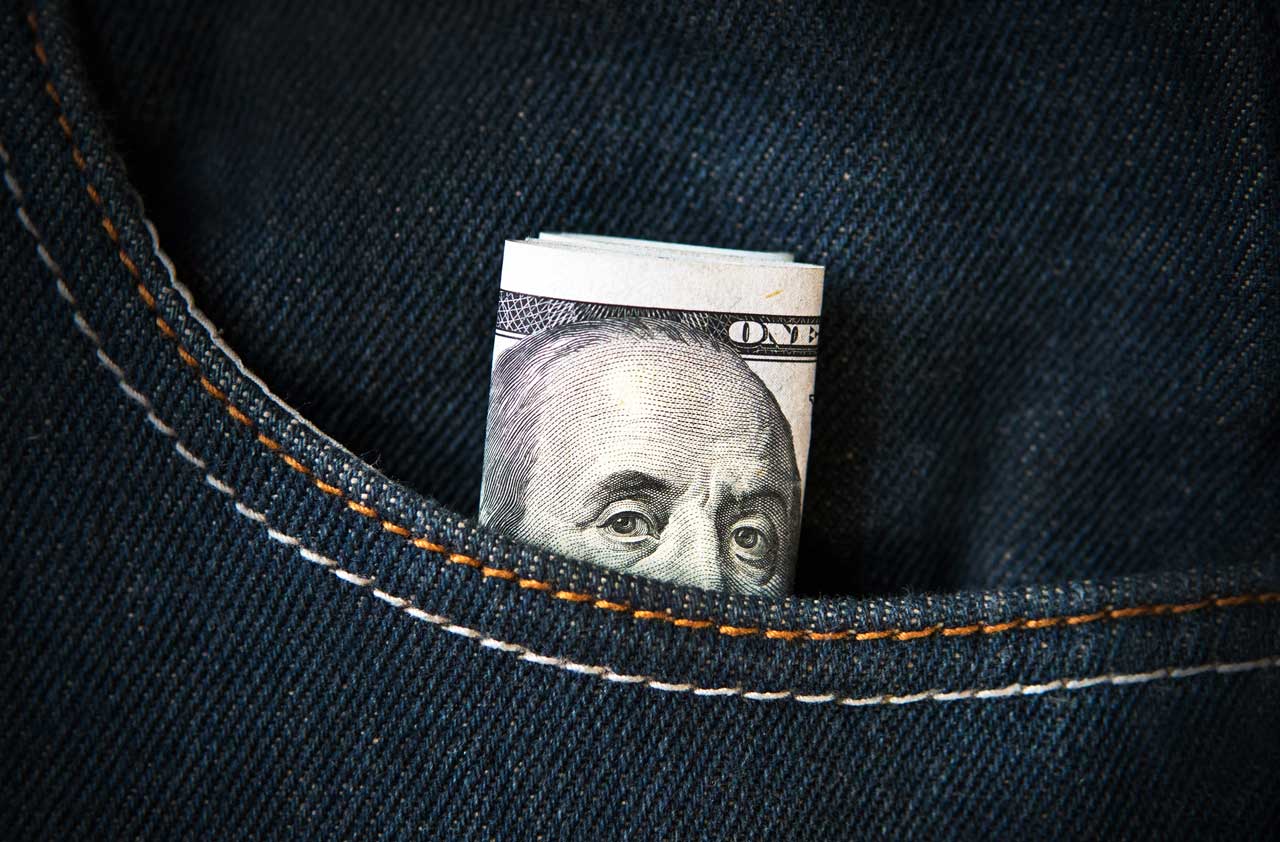The Economy Is Fine: 7 Reasons Investors Shouldn't Panic
The stock market has just gone through a bout of volatility stronger than anything we’ve seen since 2015.

Profit and prosper with the best of Kiplinger's advice on investing, taxes, retirement, personal finance and much more. Delivered daily. Enter your email in the box and click Sign Me Up.
You are now subscribed
Your newsletter sign-up was successful
Want to add more newsletters?

Delivered daily
Kiplinger Today
Profit and prosper with the best of Kiplinger's advice on investing, taxes, retirement, personal finance and much more delivered daily. Smart money moves start here.

Sent five days a week
Kiplinger A Step Ahead
Get practical help to make better financial decisions in your everyday life, from spending to savings on top deals.

Delivered daily
Kiplinger Closing Bell
Get today's biggest financial and investing headlines delivered to your inbox every day the U.S. stock market is open.

Sent twice a week
Kiplinger Adviser Intel
Financial pros across the country share best practices and fresh tactics to preserve and grow your wealth.

Delivered weekly
Kiplinger Tax Tips
Trim your federal and state tax bills with practical tax-planning and tax-cutting strategies.

Sent twice a week
Kiplinger Retirement Tips
Your twice-a-week guide to planning and enjoying a financially secure and richly rewarding retirement

Sent bimonthly.
Kiplinger Adviser Angle
Insights for advisers, wealth managers and other financial professionals.

Sent twice a week
Kiplinger Investing Weekly
Your twice-a-week roundup of promising stocks, funds, companies and industries you should consider, ones you should avoid, and why.

Sent weekly for six weeks
Kiplinger Invest for Retirement
Your step-by-step six-part series on how to invest for retirement, from devising a successful strategy to exactly which investments to choose.
The stock market has just gone through a bout of volatility stronger than anything we’ve seen since 2015. The Dow Jones Industrial Average officially landed into correction territory – a decline of 10% or more – over a period of just a couple weeks that saw the index suffer a pair of one-day drops of 1,000 points or more.
Investors worried about the recent chaos can take a little bit of heart in knowing that corrections are perfectly normal events. In fact, the stock market corrects about once a year on average, according to Deutsche Bank analysis. And while volatility, as measured by the CBOE Volatility Index (VIX), did spike to multiyear highs, that came after a period of record stability that may have lulled investors into a false sense of security.
Nonetheless, the question still remains: Are there more losses to come?
Investors might look to the underlying U.S. economy, finally gaining steam after years of so-so performance, for clues. They’ll find little evidence to sell. Consider these seven fundamentals:
STORE: Get The Kiplinger Letter

U.S. GDP Growth Is Accelerating
The Kiplinger Letter forecasts 2.9% GDP growth in 2018, tied for the best year for growth since the recession.
The country’s already-low unemployment rate will decline even more, to 3.8% by year-end from 4.1% now. More folks working and earning bigger paychecks will also let shoppers keep spending briskly—the biggest single driver of GDP growth.

The Entire Global Economy Is Expanding
Global GDP will expand by 3.8% this year, forecasts The Kiplinger Letter. That’s the best performance since 2011. The uptick is a welcome improvement that heralds greater prosperity for more countries.
The U.S., China, Japan, Europe and most emerging markets are finally all growing steadily at the same time. Recent years have seen stumbles or recessions in one country or another, which have conspired to keep the global economy as a whole from clicking.
Among the many factors driving the trend:
- The growth pickup in the U.S., driven in part by tax cuts and business-friendly regulatory changes.
- Slowing, but still fast, expansion in China, where the economy is switching from its traditional reliance on manufacturing and construction to a more durable model of consumer spending and services.
- Turnarounds in Brazil and Russia, two resource-dependent economies that suffered when commodity prices fell and are rebounding now as prices recover.
- Even the European Union and Japan are enjoying a resurgence, after years of financial crisis and populist upheaval in Europe and economic stagnation in Japan.
Global trade volumes are up. Ditto, business investment. And manufacturing, too.

The Tax Overhaul Will Goose the Economy Even More
Companies that previously had fewer ways to cut their effective tax rate will save more than others with the new tax law’s 21% corporate rate. Among business lines likely to save a lot: Builders. Retailers. Wholesalers. Services, except firms in food services.
Some specific companies in for a big after-tax earnings boost: ConocoPhillips (COP). Facebook (FB). CVS Health (CVS). Nordstrom (JWN). Chevron (CVX). LabCorp (LH).
(Some companies not seeing much of a cut: Ford, GM, United Airlines, Micron Technology. Why? They typically paid less than 10% to begin with.)
Rate cuts aren’t the only boon for business. More-generous depreciation rules help, too. For five years, firms can deduct all of the depreciation of capital goods in the year the equipment is bought, rather than over multiple years. Capital-intensive businesses will save a bundle, thanks to faster depreciation, particularly manufacturers, miners and those in the telecom and transportation sectors. Equipment sellers will also cash in as orders jump for everything from robots for assembly lines, made by suppliers such as Fanuc (FANUY), to bulldozers from Caterpillar (CAT).
- Multinationals with lots of overseas earnings also figure to benefit from the new tax law. New rules on repatriated earnings will hit foreign profits with a one-time, 15.5% tax—a windfall for the Treasury, since the tax applies whether the money is brought home or not. U.S. companies have a whopping $2.5 trillion held overseas. Much of it will return now. That’s good news for the U.S. economy in general and for shareholders of Apple (AAPL), Microsoft (MSFT) and other firms with big cash hoards. Dividends and share buybacks will rise.
.tax-reform-widget {margin: 2em 0;}.tax-reform-widget .kip-md-see-also a {display: block;font-size: 18px;padding: 0;}.tax-reform-widget .kip-md-see-also a:first-of-type {margin-top: .4em;}@media all and (min-width: 700px) {.tax-reform-widget {background: url(/kipimages/tax_reform_1040.png) no-repeat right;background-size: contain;}}
New Tax Plan: Planning for New Tax Rates, Tax Brackets and DeductionsSPECIAL REPORT: See Our Full Coverage of the New Tax LawFEATURED SLIDE SHOW: 26 Ways the New Tax Law Will Affect Your Wallet

Business Spending Is Poised to Jump
The strengthening global economy and weaker dollar will fuel exports of U.S.-made goods, while higher energy prices promise to spur more investment in oil and gas drilling. Both trends are good news for manufacturers, who will be investing in plants and equipment to meet demand.
The new tax law’s generous rules on expensing will also spark a flurry of new spending.

Home Building Has a Good Year Ahead
The single-family-home market will continue to thrive on strong demand, and multifamily construction will stabilize after dropping sharply last year amid an excess of supply and slowing rent growth.
New-home sales, which ended 2017 in solid territory, should post an almost 10% year-over-year gain in 2018. Existing-home sales will rise, too, though limited supply continues to hold back growth.

Wages Are Rising
Already rising moderately, pay increases will pick up to 3% by the end of 2018, forecasts The Kiplinger Letter. Plus, employers are improving their benefits offerings as a way to sweeten the deal. Some have worried that rising wages cause higher inflation, which tends to be bad for financial markets. But evidence indicates little connection between the two in recent years
In industries such as manufacturing and construction, many small firms are finding themselves being forced to hike wages—and not just to lure new hires. Many smalls need to pay more just to keep their current workers from jumping ship.
Good growth in restaurant and food-service jobs indicates consumers are feeling flush enough to eat out more. Ongoing strong hiring in construction and manufacturing is a good indicator of underlying economic strength. Export growth will keep boosting most of the manufacturing sector, but expect some layoffs in the auto industry as sales taper off.

Consumer Spending Continues to Rise
Household wealth will continue to increase, thanks to higher home values and, the recent market setback notwithstanding, rising stock prices. Folks will feel wealthier, and they’ll spend accordingly.
But what exactly will they spend more on? The so-called wealth effect lifts spending in general, but some types of goods and services benefit more than others. Think luxuries: Travel, meals out, hotel stays and home improvements, including new furniture and appliances. In other words, stuff folks might want but don’t need—and can’t justify when times are tough.
By contrast, essential goods such as groceries, gasoline and medical products probably won’t see much benefit.
- One warning note: A tumble in financial markets could reverse the effect of getting consumers to spend more. Keep an eye on this metric in the wake of February’s market selloff by viewing the report from the U.S. Department of Commerce’s Bureau of Economic Activity, updated monthly. This is only one of several broad economic indicators investors should watch, with the understanding that a single month’s move in either direction won’t portend a market crash or rally. But staying aware of the economy’s general health over time can help astute investors determine how sound the market’s footing is.
Profit and prosper with the best of Kiplinger's advice on investing, taxes, retirement, personal finance and much more. Delivered daily. Enter your email in the box and click Sign Me Up.
-
 5 Vince Lombardi Quotes Retirees Should Live By
5 Vince Lombardi Quotes Retirees Should Live ByThe iconic football coach's philosophy can help retirees win at the game of life.
-
 The $200,000 Olympic 'Pension' is a Retirement Game-Changer for Team USA
The $200,000 Olympic 'Pension' is a Retirement Game-Changer for Team USAThe donation by financier Ross Stevens is meant to be a "retirement program" for Team USA Olympic and Paralympic athletes.
-
 10 Cheapest Places to Live in Colorado
10 Cheapest Places to Live in ColoradoProperty Tax Looking for a cozy cabin near the slopes? These Colorado counties combine reasonable house prices with the state's lowest property tax bills.
-
 The U.S. Economy Will Gain Steam This Year
The U.S. Economy Will Gain Steam This YearThe Kiplinger Letter The Letter editors review the projected pace of the economy for 2026. Bigger tax refunds and resilient consumers will keep the economy humming in 2026.
-
 Trump Reshapes Foreign Policy
Trump Reshapes Foreign PolicyThe Kiplinger Letter The President starts the new year by putting allies and adversaries on notice.
-
 Congress Set for Busy Winter
Congress Set for Busy WinterThe Kiplinger Letter The Letter editors review the bills Congress will decide on this year. The government funding bill is paramount, but other issues vie for lawmakers’ attention.
-
 The Kiplinger Letter's 10 Forecasts for 2026
The Kiplinger Letter's 10 Forecasts for 2026The Kiplinger Letter Here are some of the biggest events and trends in economics, politics and tech that will shape the new year.
-
 Special Report: The Future of American Politics
Special Report: The Future of American PoliticsThe Kiplinger Letter The Political Trends and Challenges that Will Define the Next Decade
-
 What to Expect from the Global Economy in 2026
What to Expect from the Global Economy in 2026The Kiplinger Letter Economic growth across the globe will be highly uneven, with some major economies accelerating while others hit the brakes.
-
 Shoppers Hit the Brakes on EV Purchases After Tax Credits Expire
Shoppers Hit the Brakes on EV Purchases After Tax Credits ExpireThe Letter Electric cars are here to stay, but they'll have to compete harder to get shoppers interested without the federal tax credit.
-
 The Economy on a Knife's Edge
The Economy on a Knife's EdgeThe Letter GDP is growing, but employers have all but stopped hiring as they watch how the trade war plays out.
